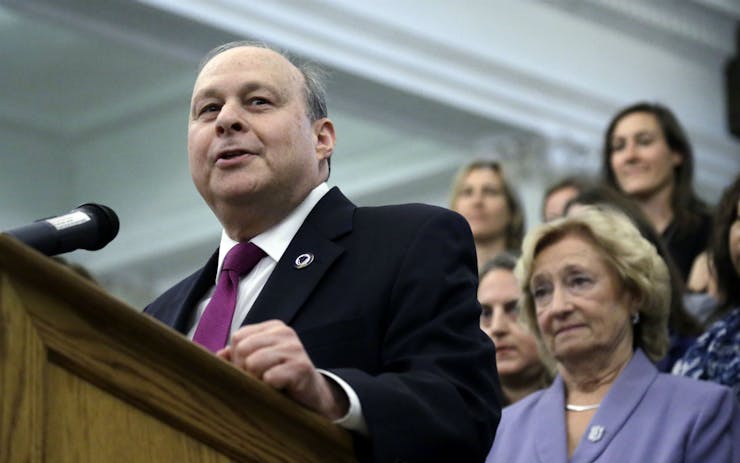BOSTON (AP) — Massachusetts Senate President Stan Rosenberg said Thursday the initiative to legalize adult-use cannabis that voters approved this week will need improvements to address such issues as taxes on marijuana sales, infused edible products, and driving while high.
The Amherst Democrat, who supported passage of Question 4 on Tuesday, said issues related to the new law could be addressed soon after the Legislature begins its new session in January.
He told reporters he believed most voters approved of legalization “in principle,” without studying the details of the more than 9,000-word proposal. He noted the measure was drafted more than a year ago, well before a report produced by a special Senate committee that visited Colorado, one of the first two states to legalize cannabis for adults 21 and older.
“The Legislature has the right to revisit policy matters that were unaddressed or not addressed as well as they could,” he said.
But the group that spearheaded the ballot question pushed back, arguing that lawmakers shouldn’t move too quickly to make revisions to the law.
“I think this is too rushed,” said Jim Borghesani, a spokesman for Yes on 4, in a telephone interview. “The Legislature has a role to play, but I think they should respect the will of the voters, let regulators do their jobs and then determine what should be done, if anything.”
State Treasurer Deb Goldberg, who is tasked under the law with appointing a three-member Cannabis Control Commission to oversee the sale and licensing of marijuana, suggested Wednesday that the state would need more time than to implement the new law than its deadlines allow.
Rosenberg, however, said the state should not “dilly dally” because such delays would be disrespectful to voters.
A 3.75 percent surtax on marijuana sales, which would be assessed on top of Massachusetts’ 6.25 percent sales tax, would be lower than any other state that has legalized recreational marijuana and may not cover all the costs of regulation and law enforcement, Rosenberg said.
He did not propose an alternative figure, but the Senate panel’s report recommends an excise tax of at least 5 percent along with a marijuana-specific sales tax of between 10 percent and 20 percent.
Lawmakers should also consider whether to allow edible marijuana products in the state, how they should be packaged and whether limits should be placed on potency, Rosenberg said. He offered a scenario in which a child gets into a pack of marijuana-infused gummy bears that parents forgot to put away.
One area where legislative comment might be welcomed, Borghesani said, was in crafting tougher rules around driving while under the influence of marijuana. He said lawmakers could have addressed that issue after possession of the drug was decriminalized in 2008, but never did.





